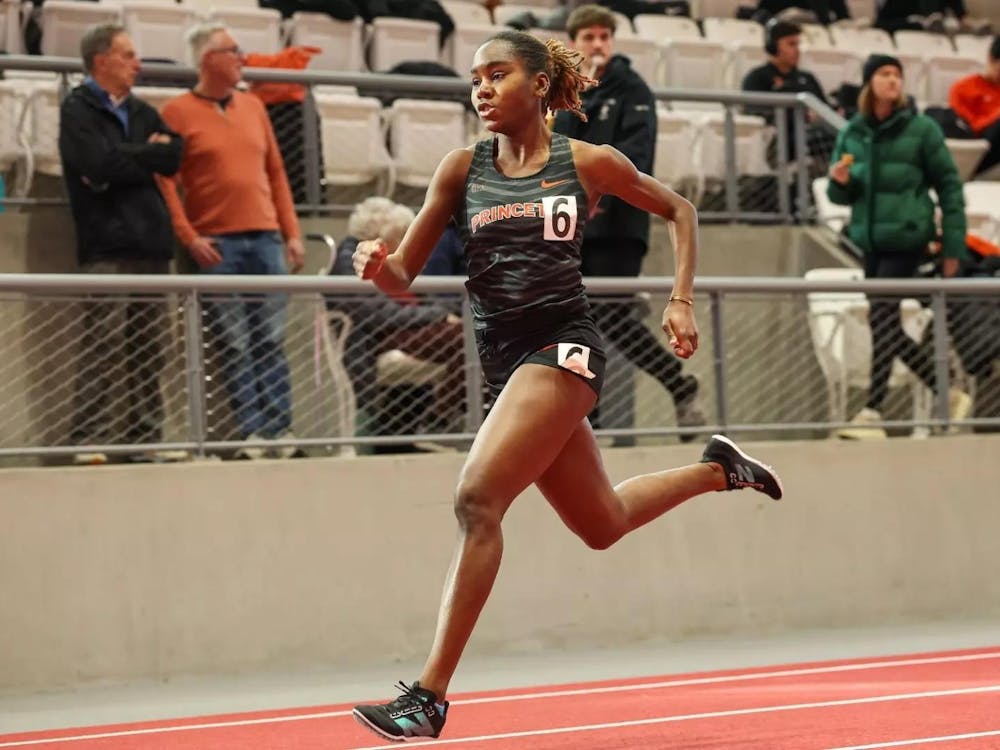In the summer of 2016, the University launched a new five-week course in which six students traveled to Greece to report on the refugee crisis from its front lines, working as foreign correspondents. On April 5, the students sat down with an audience to talk about their experience in this capacity.
Over 30 people gathered in a meeting room in the Louis A. Simpson International Building to attend the panel discussion.
Sandra Bermann, University professor of comparative literature and the head of Whitman College, started the event by discussing different “narratives of migration,” artistic and political, that the media presents to the public. She then introduced Joe Stephens, who is a Ferris Professor of Journalism in residence at the University and a veteran investigative journalist.
Stephens said that while teaching journalism at the University, he noticed that the “Orange Bubble ... was not a good place to be an eyewitness to history.” This realization drove him to help create a new kind of course that would allow students to engage with journalism more practically and intensely than was possible in classes. He noted that, due to its recent financial collapse and the influx of refugees from Syria, Greece “immediately came to mind” as the site of this new program.
Roughly a year before the program began, Stephens said he visited Lesbos, the Greek island closest to Turkey, to assess whether or not the island would be suitable and safe for a student trip. Stephens said that refugees had set up camps there in olive groves and on hillsides, supported by an unstructured but effective network of unaffiliated volunteers and NGO relief organizations.
Stephens planned to have students live and work alongside the refugees and volunteers while telling their stories. However, by early 2016, the EU-Turkey deal, which mandated that some refugees in Lesbos be sent back to Turkey, had come into effect, derailing Stephen’s vision for the course. Refugees became increasingly confined to formal camps, surrounded by barbed-wire fencing and guards, he said.
In response to this sudden change, Stephens reorganized the course such that students would only stay in Lesbos for a week before moving on to Athens. He praised his students’ flexibility and composure in this, noting their ability to see through the “fog of the situation” to find a story worth telling.
Not all of the students initially felt confident in their ability to find and report on a specific, significant narrative.

Iris Samuels ’19 said she was “shocked and uncertain” when she first arrived in Greece. However, she said she quickly decided to focus on refugee children's education in Greece. She presented the room with an image of an empty, fully-stocked classroom in Greece, and she noted that although the United Nations had provided school supplies and furniture, the classroom remained unused when she visited — there was no teacher.
Samuels, a former columnist for The Daily Princetonian, is also a recipient of the McAfee Award for independent journalism, which allowed her to travel to Turkey and Bulgaria and to continue reporting on the refugee crisis after the course ended.
Hayley Roth ’17, who also focused on education in her investigation, said that she was “struck by the dichotomies” that existed between the Greece she saw as a tourist and the Greece she saw while speaking with refugees. Roth captured these dichotomies in photos, comparing the view of the Acropolis from her hotel to the abject conditions of the refugee camps.
These weren’t the only tensions, Ally Malkovich ’17 explained. She noticed the tension caused by religious differences between largely Muslim refugees and overwhelmingly Greek Orthodox locals. She explained that there was another reality besides that of Greek hospitality, and she noted the rise of anti-immigrant, neo-Nazi political groups in the area.

Renowned journalist Deborah Amos, concluding the event, spoke about her 30-year career in journalism, which she spent reporting on a wide variety of immigration waves.
Now, aside from teaching at the University, Amos reports on the Nassau Presbyterian Church’s efforts to welcome immigrants. She added that it is important to report on immigrants as individual, human “survivors” rather than as “nameless, faceless bogeymen,” or as victims incapable of contributing to society.
Louise Sandberg, an attendee of the panel, is the cultural orientor at Interfaith Rise, an organization focused on providing immigrants and refugees with housing, jobs, and support. Sandberg said that she liked to stay informed about the University’s interaction with the refugee crisis, and she added that she hoped the University would become more involved in helping immigrants and refugees who have resettled nearby.
Other attendees were motivated by personal background to attend, including University Professor of Philosophy Alexander Nehamas ’71, who is from Greece. The professor felt motivated to attend in order to support his colleagues, and he noted that he was also interested in the subject.
Though Nehamas praised the students as good journalists, he emphasized that stories about migration always have two sides: “the story of the refugees and the story of the locals who have to deal with a huge influx of people who don’t know how to integrate themselves.” He added that Greece’s financial crisis made it difficult for the government to provide adequate support to the refugees, and he noted that it was politically inviable for politicians to spend on aid when they had “hungry voters.” Nehamas said that presentation photos also didn’t show how ugly the conditions were, stressing the importance of accurately portraying these conditions.
The panel discussion, titled “The Refugee Crisis: Reporting on the Front Lines in Greece — and New Jersey,” was sponsored by the PIIRS Research Community. The discussion took place at 4:30 p.m. in Simpson 144.








